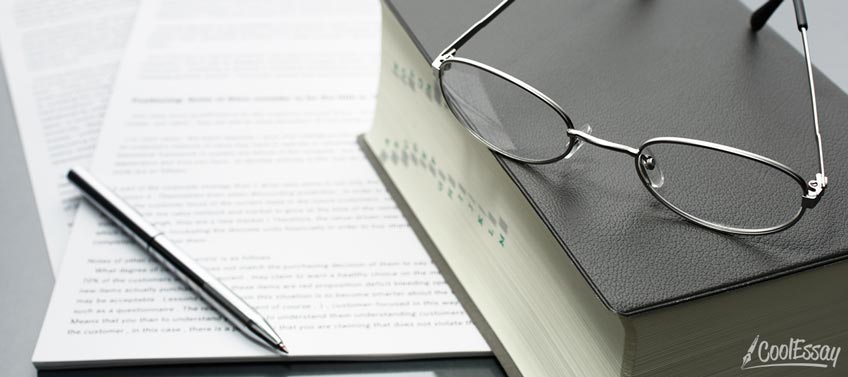
Initially you should define your problematic sphere, it should be more specific than in an ordinary essay paper. When you read a lot about it, you can understand what is your approach to it: your opinion on this subject, the point of view from which you look at it. After that, write your main point. That is the flat start. Now you should prove that your main thought is not so flat, show that it has some basis. Find arguments in the books and papers you read on your subject and connect them to your thought.
Let us discuss it in a more specific way.
Main Point
It should demonstrate the subject of your paper and, moreover, make a comment about your position in association with the topic. Your main hypothesis coordinates your piece and keeps your dispute focused.
Things to Ask When Formulating Your Thesis
You should give a proposition at an early stage in your paper in the presentation, or in longer papers in the second entry to develop your position and give your peruser an ability to tell east from west.
What Next?
After you announced your main statement keep in mind the end goal of your paper in order to complete a fruitful content expression. Be as clear and as particular as could be expected under the circumstances; stay away from ambiguous words. Demonstrate the purpose of your paper yet keep a strategic distance from sentence structures like "The purpose of my paper is…”
One More Tip
Is that what you are talking about particularly? You are likely to change your main point when you update your argumentation. Still, keep in mind that the main point ought to be concrete and clear. Do not tell about abstract entities, do not write a lot of sentences in order to explain what you mean. Learn how to express your thought in one-two sentences. Then, give the ground to your statement with arguments. Avoid the opposite way. If you firstly collect arguments and then try to write the main thesis you will get lost in your reasoning and so will your audience.

Check Your Theory
Settle on one single assumption and afterwards continue with further advancements.
Your elaboration should be restricted to what can be refined in the limited number of pages. Surrond your topic with the aim that you can get straight to the “filling” of. Being particular will be much more effective than elaborating on general things that do not state much. Try not to waste four pages of simply skimming the surface. The opposite side of an engaged, thin, fresh postulation is a wide, sprawling, shallow theory. Think about this unique proposition (excessively broad) with three convincing corrections:
- Is your proposal explanation clear? Your proposal articulation is no special case to your composition: it should be as clear as could reasonably be expected. By this clarity, you will ensure that your peruser understands precisely what you mean.
Distance from Specific Terms
Unless you are composing a specialized report, maintain a strategic distance from specialized terminology. Continuously maintain this distance from any too complicated language, unless you are certain your audience will be acquainted with it. Keep away from obscure words, for example, "intriguing," "negative," "energizing," "uncommon," and "troublesome." Keep away from repeating of conceptual words too often, for example, "society," "values," or "culture." These words advise the peruser by nothing on the off chance that you don't painstakingly clarify what you mean by them.
What to Avoid
Never accept that the significance of a sentence is self-evident. Verify whether you have to characterize your terms ("aristocracy," "routine," "corporate greed," "society"), and afterward choose the most proper place to do so. Try to not accept, for instance, that you have a similar comprehension of what "society" implies as your audience. To maintain a strategic distance from false impressions, be as particular as could be expected under the circumstances. Analyze the first postulation (not particular and sufficiently clear) with the reconsidered variant (a great deal more particular and clear).

Your Position
Does your proposal include a remark about your position on the current issue? The proposal explanation ought to accomplish more than only report on the topic; it must uncover what position you will take in connection to that point, how you plan to investigate/assess the subject or the issue. To put it plainly, rather than just expressing a general certainty or depending on a shortsighted explanation, you should choose what it is you need to state. Along these lines you will explain to your peruser why your interpretation of the issue matters.
Tips on How to Do It
For example, do not say: “In this paper, I am talking about the dependence of people on power.” It is better to construct your sentence with your view, like this: “It is remarkable that people want to have power, but I claim that they do not only want it but are also dependent on it.”
Hold back from making widespread statements that distort complex issues. Do not say that you want to save the earth or slow down the global warming. Try to tell why it is important, show the connection between your audience and the problem of your investigation.

When you make a (subjective) decision, indicate and legitimize your thinking. "Because" is not a justifiable substitute for the arguments.
Stay away from just reporting a reality. Say more than what is as of now demonstrated already..
Try not to hope to think up a completely planned theory articulation before you have wrapped up the paper. The proposal will unavoidably change as you update and build up your thoughts, and that is alright! Begin with a speculative proposition and improve as your paper is being created.
Do Not Be Aggressive
Stay away from strong and angry statements. You are not an early socialist in the beginning of the twentieth century. Stay calm even if the topic bothers or hurts you a lot. Your arguments should speak for themselves, not your screaming voice. Of course, intonation matters, but do not be too loud and emotional. If you are not presenting it in front of an audience, then try not to include rather expressive words in order not to scare off your reader.

Things to Think About
- Ask yourself whether your proposition styling is unique.
- The point you make in the paper ought to matter.
- Be set up to reply to the question "So what?" about your main statement in the thesis paper .
- Be set up to clarify why the point you are making is deserving to result in a paper. Why should the peruser read it?